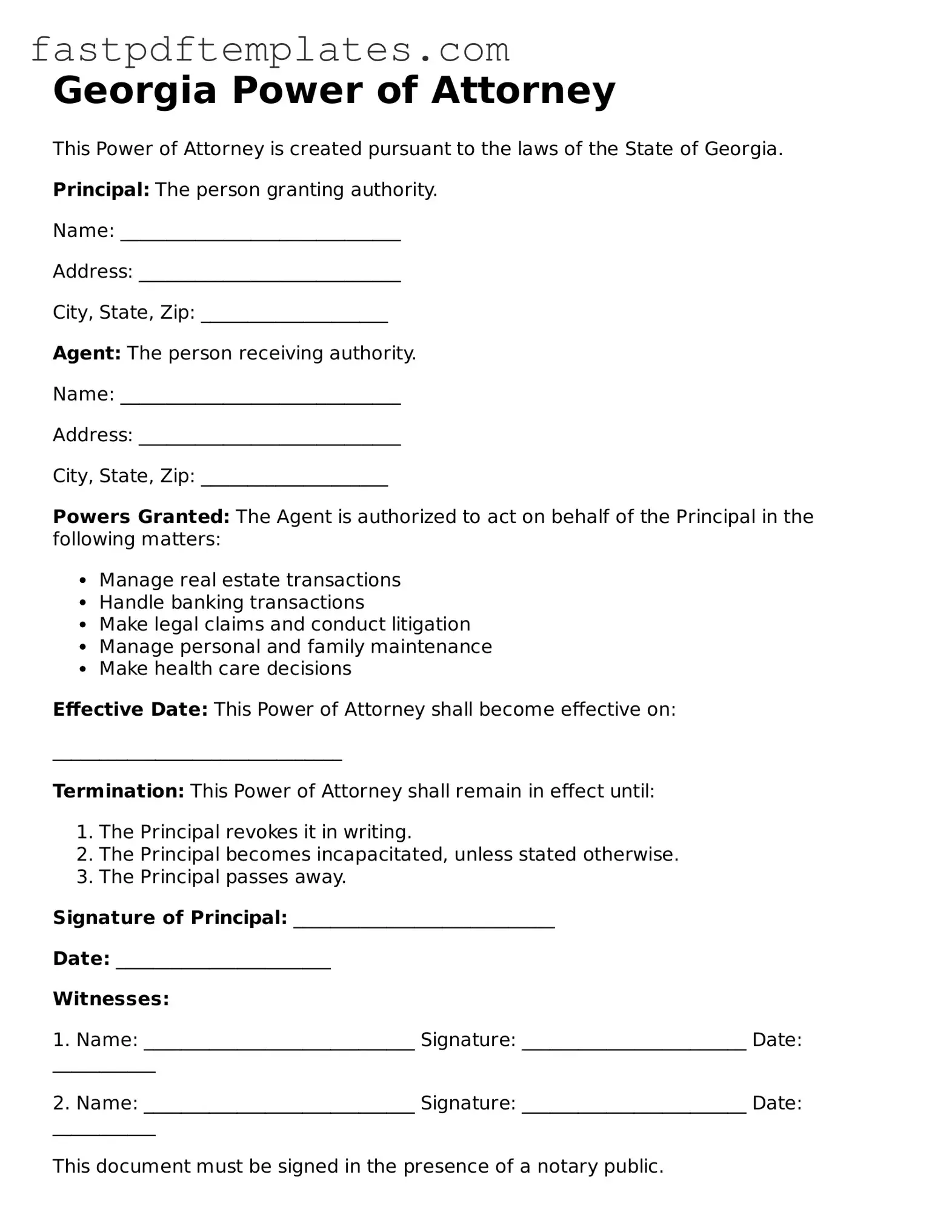Attorney-Approved Georgia Power of Attorney Document
The Georgia Power of Attorney form is a legal document that allows an individual, known as the principal, to grant authority to another person, called the agent, to make decisions on their behalf. This form can cover a wide range of financial and legal matters, ensuring that the principal's interests are managed according to their wishes. Understanding the nuances of this document is essential for anyone considering granting power of attorney in Georgia.
Access Document

Attorney-Approved Georgia Power of Attorney Document
Access Document
Your form still needs completion
Complete your Power of Attorney online and download the final PDF.
Access Document
or
Click for PDF Form
